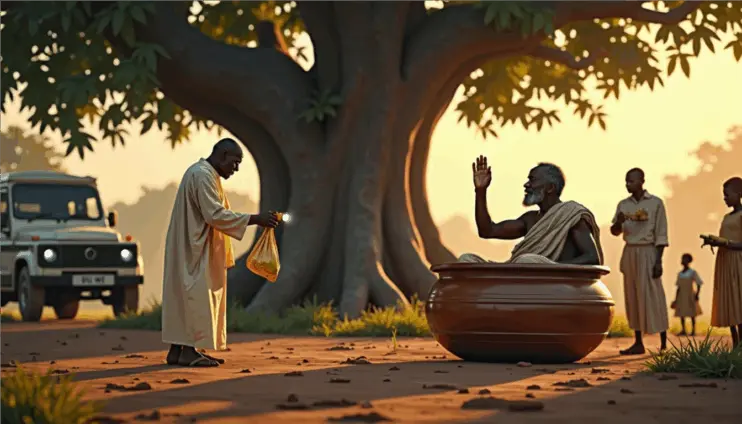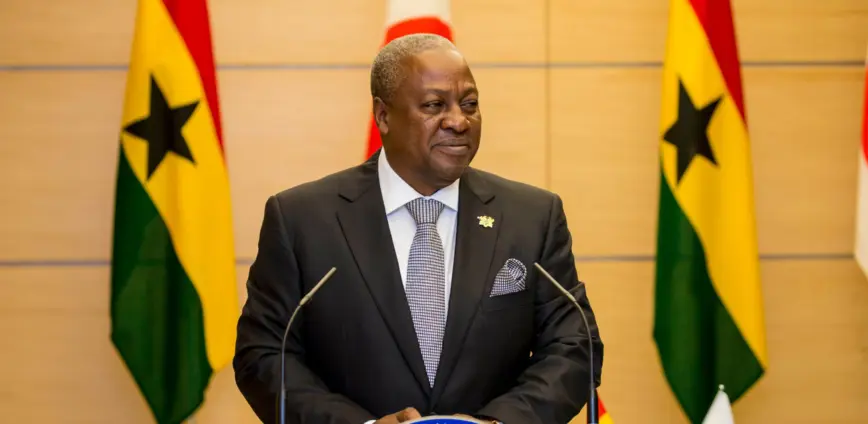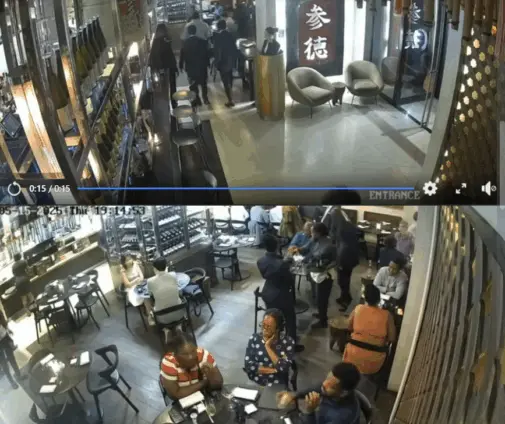The political stage is often set with grand gestures and displays of power, but what lies beneath the surface? What truly defines a leader, and what values should they uphold? This blog post explores these questions through the prism of an intriguing encounter involving President John Dramani Mahama and a modern-day embodiment of Diogenes, the ancient Greek philosopher. The narrative draws parallels to the famous meeting between Alexander the Great and Diogenes, probing the essence of virtue versus victory and questioning the true intentions behind leadership—what they offer and what they conceal. Is it power that dazzles, or wisdom that blinds? Perhaps, as the saying goes, the man in the pot sees more than the man in the palace.
The Echo of Diogenes: From Ancient Greece to Modern Ghana
Diogenes, a philosopher known for his radical simplicity and rejection of societal norms, lived in a jar and challenged the conventions of his time. He famously owned nothing, valuing self-sufficiency over material possessions. His life was a testament to the idea that true freedom comes from detachment.
“Stand aside; you’re blocking my sunlight.” – Diogenes
Alexander the Great, the most powerful man in the world, once visited Diogenes. Impressed by the philosopher’s self-sufficiency, Alexander offered him anything he desired. Diogenes, basking in the sun, simply requested that Alexander step aside, as he was blocking his sunlight. This encounter highlights the contrast between worldly power and inner peace, suggesting that even the mightiest seek something that material wealth cannot provide.
Mahama’s Encounter: A Ghanaian Reflection
President John Dramani Mahama, having returned from political exile, embarked on a nationwide Thank You Tour. In Bole, a figure reminiscent of Diogenes emerged from the periphery. This modern Diogenes, like his ancient counterpart, seemed unimpressed by the trappings of political power.
Mahama, in a gesture of goodwill, offered the man a solar flashlight and other gifts. The Diogenes-like figure responded with skepticism, questioning the true purpose of these offerings. “Will this lamp show me the truth? Will it reveal justice? Or merely cast sharper shadows of your promises?” he asked, his words cutting through the veneer of political generosity.
The man retorted, “Stand aside—you’re blocking my integrity.” This statement encapsulates the tension between genuine virtue and superficial political gestures. It challenges the notion that leadership is about grand displays and instead emphasizes the importance of inherent integrity.
Virtue Over Victory: What Defines True Leadership?
This anecdote underscores the importance of restraint, honesty, and humility in leadership. True greatness isn’t measured by the length of the convoy, the wattage of donated lamps, or the number of photo ops, but by moral courage.
What defines greatness in leadership? Is it the infrastructure built around you, or the moral courage you cultivate within? Diogenes understood that his lack of desire made him free, allowing him to critique the materialism and excesses of society without fear or favor. This freedom is a cornerstone of true leadership.
A Final Word From The Pot: Ego-Free Leadership
Political symbolism often masks a lack of substance. Virtue cannot be campaigned for, and integrity is not distributed from SUVs. The light that Diogenes sought was ego-free rather than solar-powered. It was a light of truth and justice, illuminating the path toward genuine service.
The encounter between President Mahama and the modern-day Diogenes serves as a potent reminder of the timeless conflict between power and integrity. It prompts us to reflect on the underlying motives behind political actions and the significance of leaders embodying virtue rather than simply pursuing victory. Just as Diogenes challenged Alexander, he challenges us to question what our leaders are truly attempting to conceal. In an age saturated with political symbolism, can leaders prioritize ego-free service and genuine integrity over transient displays of power? Remember: Power dazzles, wisdom blinds, and sometimes, the man in the pot sees more than the man in the palace.
Image Source: MYJOYONLINE





















